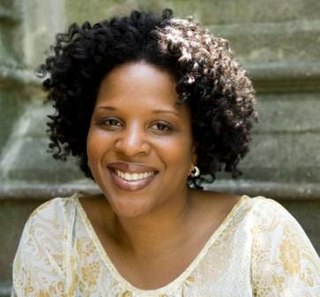A Quote by Judy Woodruff
I think there's a fundamental moral issue about whether it's right for a machine to decide to kill a person. It's bad enough that people are deciding to kill people, but at least they have perhaps some moral argument that they're doing it to ultimately defend their families or prevent some greater evil.
Related Quotes
The real conflict in the abortion issue is between a value - the right to choose whether or not to have the child - and a moral dictum - don't kill other humans. The more here, even, is flexible and relative. "Thou shall not kill" really means, "don't kill productive, contributing members of your own society that aren't a threat to your safety." If it was not relative, then no "Judeo-Christian" person could ever go to war or execute someone.
So when we come across somebody who does understand this and makes an effort to try and explain it to us, some people freak out and turn that person into either an object of worship or, some people freak out and want to kill that person. I think it's because they know what's true but they don't want to know, they don't want to face up to what that actually means. So they're going to kill the messenger and hope that by doing so they'll destroy the message so they can go back to living their ordinary life again.
When a plane crashes and some die while others live, a skeptic calls into question God's moral character, saying that he has chosen some to live and others to die on a whim; yet you say it is your moral right to choose whether the child within you should live or die. Does that not sound odd to you? When God decides who should live or die, he is immoral. When you decide who should live or die, it's your moral right.
... when you make it a moral necessity for the young to dabble in all the subjects that the books on the top shelf are written about, you kill two very large birds with one stone: you satisfy precious curiosities, and you make them believe that they know as much about life as people who really know something. If college boys are solemnly advised to listen to lectures on prostitution, they will listen; and who is to blame if some time, in a less moral moment, they profit by their information?
For me, moral questions such as stem-cell research turn upon whether suffering is caused. In this case, clearly none is. The embryos have no nervous system. But that's not an issue discussed publicly. The issue is, Are they human? If you are an absolutist moralist, you say, "These cells are human, and therefore they deserve some kind of special moral treatment."
The American people are not ready for the idea that everyone has at least a moral right to good, timely health care. They do agree they have a moral right, in critical cases, to have anything done to save their life, but they don't believe that anyone has a right not to fall that sick to begin with. So if you ask me, "Are we ever succumbing to some notions of solidarity as a nation?," I would say, "Not at all." I would describe us as a group of people who share a geography. That's a better description of Americans than that we're a real nation with a sense of solidarity.

































